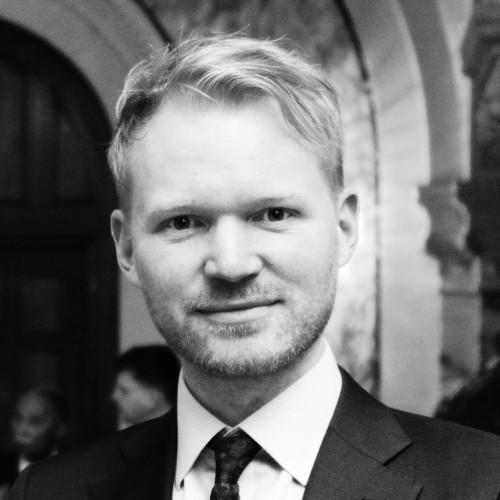A Critical Map of the Human Rights and Economic Inequality Discourse: Business as Uncharted Territory
Daniel Litwin, Cabinet Yves Fortier and the European University Institute
Notes & Changes
This event will be hybrid, taking place in-person in the Gilly Leventis Meeting Room, Bonavero Institute of Human Rights and online via Zoom. Please register here for online attendance.
Abstract
Economic inequality, specifically the gap in income and wealth between individuals within countries, has increased significantly in recent years. It has been accompanied by a better understanding of the far-reaching economic, political, and social consequences of inequality. As awareness of these consequences has grown, their potential effects on human rights have led to a rise of scholarly and institutional interventions. These interventions form an emerging and polarized human rights and economic inequality discourse (HREI). Central to this discourse is the question: do human rights have something to say about economic inequality? This paper aims to make two key contributions to the HREI discourse.
As its first contribution, this paper presents a simplified ‘mainstream’ and ‘critical’ binary to map, identify, and address issues with the current disparate interventions in this discourse. The mainstream and critical strands of this discourse stand at opposing ends of the desirability of human rights mainstreaming in the context of economic inequality. They draw on various disciplines, ranging from economics to history, to bolster their arguments. Each strand is associated with a figure with significant symbolic capital in the field of human rights, and they share affinities (and the limits) of the methodological proclivities of their champions. Nonetheless, both remain firmly in a state-centric paradigm.
Accordingly, as its second contribution, this paper identifies a significant gap in the HREI discourse: the overlooked role of business. It shows how the discourse has predominantly focused on advocating for a strong state to remedy distributive problems. In the process, it has overlooked a critical component of the contemporary story of economic inequality—the distributive role of businesses across global value chains. The result is the perpetuation of a law and economics orthodoxy that sees the consequences and mitigation of inequality externalized to the state, in a context where governance gaps around some of the key drivers of inequality, e.g. tax avoidance, see them largely powerless to act. Building on developments in business and human rights, this paper argues that to prevent human rights from being a ‘powerless companion’ to inequality, it is essential to recognize the role of business in tackling inequality, in addition to that of states.
This paper unfolds in four parts. It begins by tracing the contours of the term ‘economic inequality’ from the perspective of economics and the HREI discourse, clarifying how it differs from various other issues within the field of human rights (Section II). It continues with a critical review the mainstream HREI discourse, examining three of the key arguments that link human rights to economic inequality, while also highlighting their limitations (Section III). In the subsequent section, it delves into the critical HREI discourse, assessing its predominantly historical claims that human rights have little to say about economic inequality and identifying challenges inherent to these claims (Section IV). In conclusion, the paper posits a path forward: to give human rights a greater voice on economic inequality, the HREI discourse must integrate corporate actors. This approach aligns with significant normative and practical shifts in the field of business and human rights (Section V).
The draft paper can be downloaded here: https://papers.ssrn.com/sol3/papers.cfm?abstract_id=4626619
Speaker

Daniel Litwin is an independent consultant, arbitrator, and researcher in international dispute settlement with a focus on ESG-related issues. He has more than a decade of experience in complex international commercial and investment disputes, evaluating corporate and state conduct against international and ESG-related norms. He focuses notably on human rights, corruption, and systemic risks in global value chains, particularly inequality and climate change to facilitate a just transition.
Daniel is currently affiliated with Cabinet Yves Fortier and the European University Institute. Previously, he has spent several years as a legal adviser to Judges Sir Christopher Greenwood and David D. Caron at the Iran-United States Claims Tribunal and as a visiting research fellow at a number of research institutes. He is a graduate of McGill University and the University of Cambridge as well as a member of the Quebec Bar.
---------
The Oxford Business and Human Rights Network (OxBHR) aims to provide a forum for critical and interdisciplinary debate on issues of business and human rights. We seek to bring together academics, civil society, businesses, and practitioners for the discussion of corporate accountability for human rights violations. We have organised events that have inter alia addressed important debates on corporate complicity in human rights violations; access to remedy for victims of business-related abuses; developments and challenges in the implementation of corporate respect for human rights; regulatory developments around the UN Guiding Principles on Business and Human Rights and the development of a binding treaty; emerging trend towards human rights due diligence; multi-stakeholder initiatives, disclosure and reporting mechanisms; and developments in (strategic) litigation against corporate (human rights) abuse. We aim to welcome theoretical, doctrinal, empirical, and policy-oriented contributions from all relevant disciplines, covering business and human rights issues across the world and industries. The OxBHR organises public events as well as invite-only meetings to discuss work in progress, draft papers, and grant proposals.
Please sign up to our mailing list to stay updated about our events and meetings by sending a blank e-mail to oxbhr-subscribe@maillist.ox.ac.uk. If you would like to be considered for presentation or have any ideas for collaboration, please get in touch with the co-convenors
To leave the OxBHR mailing list, send a message to: oxbhr-unsubscribe@maillist.ox.ac.uk. You will be sent a confirmation request and your email address will be removed from the mailing list once you reply. You must send the email from the same email address you used to join the mailing list.
Follow us on Twitter!
